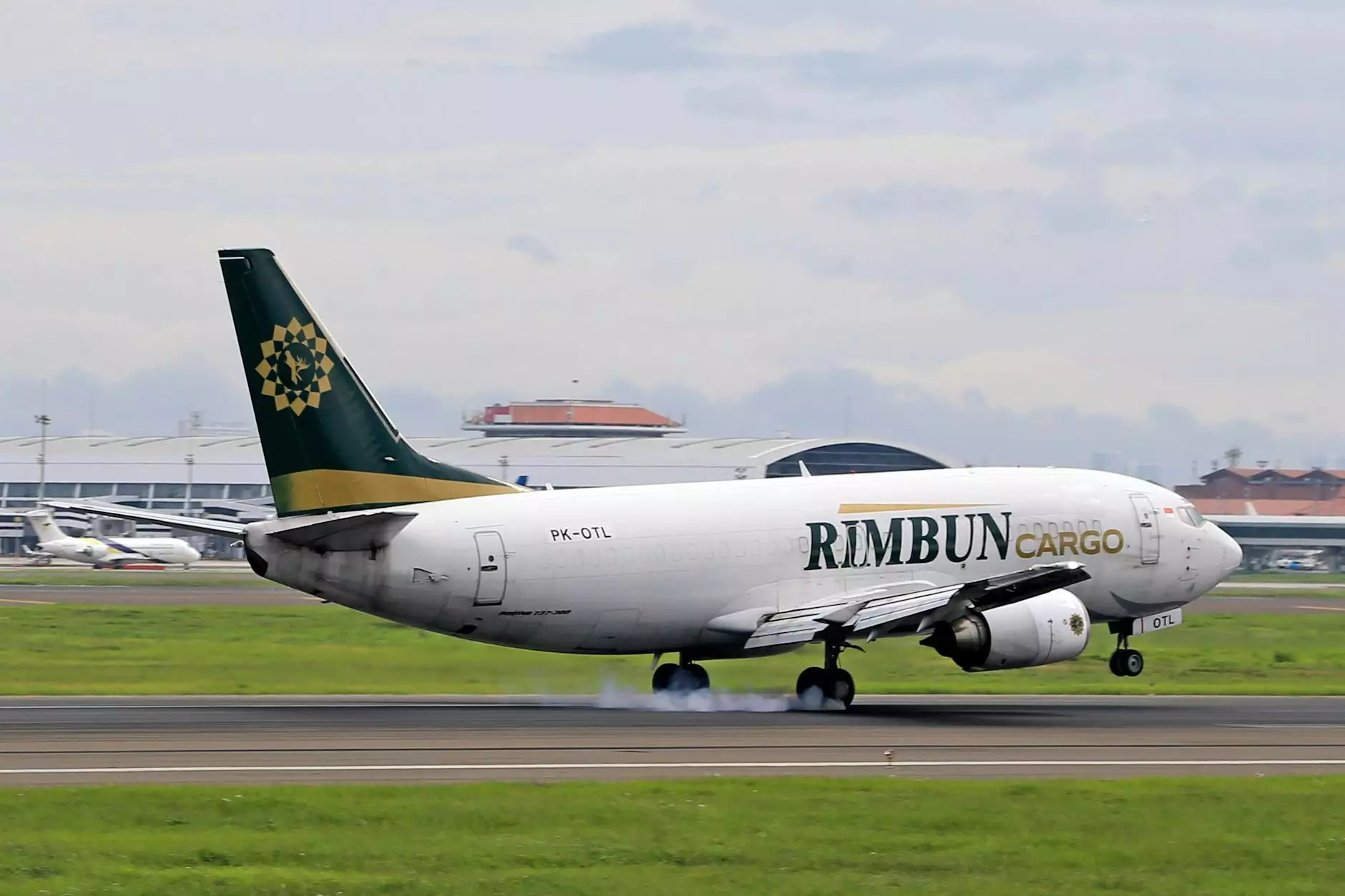Understanding Air Cargo Quotations: A Comprehensive Guide

Introduction to Air Cargo Quotations
In the dynamic world of global trade, air cargo quotations play a pivotal role in optimizing logistics and streamlining shipping processes. Businesses often face challenges in navigating these waters, particularly in ensuring they receive the best possible rates and services. This article will delve deep into the various aspects of air cargo quotations, including factors that influence pricing, key terminologies, and how they can propel your business forward.
What is an Air Cargo Quotation?
An air cargo quotation is essentially an estimation of costs associated with shipping goods via air. These quotations serve as a critical tool for businesses comparing airline freight services. When requesting a quotation, businesses typically provide specifics about their shipment, including:
- Weight of the cargo
- Dimensions of the package
- Type of goods being shipped
- Shipping origin and destination
- Delivery speed requirements
Understanding these aspects not only aids in receiving accurate quotations but also helps businesses in making informed decisions that enhance their operational efficiency.
The Importance of Obtaining Accurate Air Cargo Quotations
In a world where time is money, obtaining accurate air cargo quotations can greatly influence a company's bottom line. Here’s why:
- Cost Efficiency: With detailed quotations, businesses can compare prices and services, ensuring they choose the most cost-effective option.
- Transparency: Quality air cargo quotations provide a clear breakdown of costs, eliminating hidden fees that can arise later in the shipping process.
- Competitive Advantage: Businesses that manage their logistics effectively, driven by optimal air cargo rates, can offer better prices and services to their customers.
- Better Planning: Accurate information allows for better inventory and production planning, reducing unnecessary holding costs.
Factors That Influence Air Cargo Quotes
Several factors come into play when determining the final cost of an air cargo quotation. Understanding these factors is crucial for businesses in the shipping sector:
- Distance: The greater the distance between the origin and destination, the higher the transportation costs.
- Weight and Volume: Air freight companies often use both the weight and volume of the shipment to calculate costs, applying whichever results in a higher charge.
- Type of Cargo: Special handling requirements for sensitive or hazardous materials can increase costs significantly.
- Seasonal Fluctuations: Demand for airfreight services may vary seasonally, impacting pricing.
- Currency Exchange Rates: For international shipping, fluctuations in exchange rates can also affect quote calculations.
How to Request an Air Cargo Quotation
Requesting an air cargo quotation should be a straightforward process. Here’s a step-by-step guide to help you through it:
- Gather Shipment Details: Compile comprehensive details regarding the shipment's weight, size, and nature.
- Identify Potential Carriers: Research and compile a list of reputable air cargo companies.
- Contact Carriers: Reach out to the carriers with your shipment details via their websites or customer service lines.
- Compare Quotations: Once received, compare the quotes based on price, delivery time, and services included.
- Negotiate: Don’t shy away from negotiating with carriers to achieve better rates or conditions.
Common Terms in Air Cargo Quotations
Understanding the terminology associated with air cargo quotations is essential for effective communication with shipping providers. Here are some common terms you should be familiar with:
- Freight Forwarder: A company or individual that arranges the logistics for the transportation of cargo.
- Dimensional Weight: A pricing technique used by air carriers that reflects the size of the package relative to its actual weight.
- Bill of Lading: A legal document between the shipper and carrier detailing the types and quantities of goods being transported.
- Terminal Handling Charge: Fees associated with the loading and unloading of cargo at an airport.
- Customs Clearance: The process of getting goods through customs so they can enter a country legally.
Best Practices for Managing Air Cargo Quotations
Managing air cargo quotations can seem overwhelming, but implementing best practices can simplify the process. Here are some recommended strategies:
- Utilize Technology: Leverage air cargo management software to streamline your quote requests and comparisons.
- Maintain Relationships: Build and nurture relationships with multiple freight forwarders for better rates and priority service.
- Regularly Review Contracts: Periodically assess your contracts to ensure competitiveness in pricing and services.
- Stay Informed: Keep abreast of market trends and price fluctuations to strategize accordingly.
- Document Everything: Maintain comprehensive records of all quotes and communications for future reference.
The Role of Shipping Centers and Airports in Air Cargo
Understanding the infrastructure supporting air cargo operations is essential for anyone looking to maximize their logistics strategy. Key elements include shipping centers and airports. Here's how they contribute:
Shipping Centers
Shipping centers serve as pivotal hubs where goods are consolidated before being dispatched to various global destinations. They ensure that products are sorted and categorized efficiently. Key functions of shipping centers include:
- Consolidation: Combining smaller shipments into larger ones to optimize costs.
- Storage: Providing temporary housing for goods before transit.
- Customs Services: Facilitating customs clearance and documentation.
Airports
Airports equipped with dedicated cargo terminals significantly enhance the efficiency of air freight. The presence of air cargo facilities in major airports allows for rapid processing and frequent flights. Key advantages include:
- Accessibility: Proximity to major urban centers enables faster delivery times.
- Frequent Flights: Availability of multiple flight options ensures flexibility in scheduling.
- Advanced Technology: Many airports utilize cutting-edge technology to streamline cargo operations and improve tracking.
Conclusion: Making Informed Decisions with Air Cargo Quotations
In an increasingly competitive marketplace, understanding and effectively utilizing air cargo quotations can set your business apart from the rest. By grasping the intricacies of air freight costs and combining this knowledge with reliable shipping centers and airport infrastructure, your business can achieve logistic efficiency and significant cost savings. Always remember the importance of meticulous planning, strong partnerships, and a proactive approach to managing shipments. With air cargo quotations playing a central role in logistics, the future of your business’s shipping strategy is bright and full of potential.









